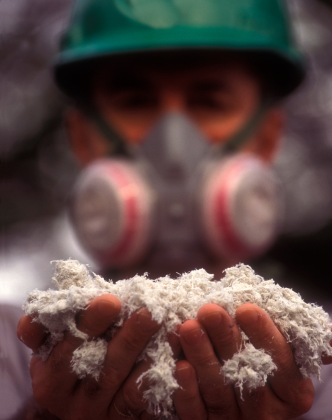Nationwide Mesothelioma Lawyer
Mesothelioma is an incurable cancer caused solely by exposure to asbestos. A diagnosis could entitle you to financial compensation from responsible parties. Our mesothelioma lawyers stand ready to support you and advocate on your behalf from start to finish. The Gori Law Firm will review the facts of your case and work to secure full and fair compensation for the effects your mesothelioma diagnosis has on your life, family, and well-being.
Home » Nationwide Mesothelioma Lawyers
- Content last modified:
Knowing your full legal rights and options following a mesothelioma cancer diagnosis is critical for securing compensation for you and your family members. The mesothelioma lawyers at The Gori Law Firm are committed to helping victims of this deadly illness pursue justice and accountability through asbestos exposure lawsuits and asbestos trust fund claims. Schedule your free consultation today to learn how our mesothelioma law firm can help you down the road toward full and fair compensation.
About Our Mesothelioma Law Firm
The Gori Law Firm is a full-service personal injury law firm with a team of top-tier asbestos litigation attorneys. Our mesothelioma attorneys have over 100 years of combined experience handling mesothelioma cases and have recovered billions of dollars in verdicts and settlements for our clients and their families. You can count on us to provide the high-quality, individualized representation you deserve in your hour of need.
Over the decades, we have developed our own specialized approach to mesothelioma cases. We emphasize teamwork, drawing on the skills of our knowledgeable asbestos attorneys, paralegals, and support staff. This allows us to handle cases efficiently and utilize the full strength of our resources as a firm. Second, we understand that mesothelioma claims are urgent matters, not least because of the life-threatening nature of a diagnosis.
Our Asbestos Settlements & Verdicts
Again, our asbestos attorneys have secured billions of dollars in settlements and verdicts for clients. Below are some of the results we have obtained for mesothelioma victims who have turned to us for help:
Mesothelioma
Age 73 – Insulator
Mesothelioma
Age 76 – Carpenter
Mesothelioma
Age 70 – Carpenter
Mesothelioma
Age 58 – Glass Worker
Mesothelioma
Age 67 – Spouse – Inspector
Mesothelioma
Age 59 – Living – Father – Inspector
Mesothelioma
Age 72 – Plumber/Steamfitter
Mesothelioma
Age 63 – Field Engineer
Mesothelioma
Age 60 – Plumber
Mesothelioma
Age 81 – Living – Mechanic
Mesothelioma
Age 55 – Laborer
What to Expect When You Work With Us
When working with our top-tier mesothelioma law firm, clients benefit from the confidence and self-assurance that come from having seasoned professionals handling their asbestos exposure cases. You can expect the following when filing a mesothelioma lawsuit with our asbestos lawyers:
- An investigation of the source of your asbestos exposure by reviewing your work and life history.
- Help determining the appropriate court for filing your mesothelioma lawsuit.
- Gathering necessary medical treatment and business records to prove the causal relationship between your diagnosis and the defendant’s actions.
- Exploring all avenues for recovering compensation, including asbestos trust fund claims, benefits through the VA, settlements with insurers, and litigation in court.
- Help navigating the law and procedural aspects of your case, including discovery, pre-trial motions and hearings, and representation at trial.
Who Can File a Mesothelioma Claim?
Individuals who can file a mesothelioma claim normally into one of two groups. One group includes asbestos-exposure victims diagnosed with mesothelioma. The second group includes surviving loved ones of people who passed away because of mesothelioma, including spouses, children, certain other family members, and legal representatives of decedents’ estates.
Contact Us Today for a Free Mesothelioma Case Review.
Types of Mesothelioma Claims
Mesothelioma lawsuits seek financial compensation for personal injuries or wrongful deaths caused by the deadly disease. In most cases, there are two routes toward securing compensation after receiving a mesothelioma diagnosis. You can either file an asbestos lawsuit or pursue an asbestos trust fund claim.
Asbestos Lawsuits
After our asbestos firm reviews your case, we can file a mesothelioma lawsuit to get your asbestos exposure lawsuit started in the appropriate court. This filing will identify the defendants you are suing for exposing you to the asbestos that caused your illness, the basic facts of the case, and the amount you are requesting in compensation. The remaining legal process generally involves the following steps:
- Exchanging evidence related to the case
- Settlement negotiations
- Pre-trial motions and hearings
- Trial
In most cases, personal injury lawsuits are settled before they reach trial. However, filing a lawsuit may be necessary if a fair out-of-court settlement cannot be reached. We have what it takes to represent you both at the negotiation table and before a judge and jury.

Trust Fund Claims
Aside from filing an asbestos exposure lawsuit, you could also pursue compensation from an asbestos trust fund. Many companies filed for bankruptcy as the risk associated with their asbestos products started generating mesothelioma cases seeking compensation. However, courts forced many of these companies to set aside funds in trusts to compensate victims.
Pursuing an asbestos trust fund claim requires following specific filing procedures established for the relevant trust and working with administrators to obtain your compensation. The help of a mesothelioma lawyer can be useful in identifying the asbestos trust applicable to you and assisting with the filing process.
Mesothelioma Lawyer FAQs
What Is the Compensation for Mesothelioma?
It is difficult to predict and impossible to guarantee the precise amount of compensation you may receive. However, it is not uncommon for mesothelioma victims to receive millions of dollars in compensation.
How Much Does It Cost to Hire a Mesothelioma Lawyer?
Our mesothelioma lawyers normally work on a contingency fee basis. This means our fee is determined as a prenegotiated percentage of the compensation we secure on your behalf. It also means there are no surprises down the road, and you pay nothing unless we win your case.
How Long Do I Have to File a Mesothelioma Claim After I’ve Been Diagnosed?
A law known as the statute of limitations sets a deadline for filing your claim. Though the deadline varies from state to state, you will only have a few years from the date of your diagnosis to file. Failure to file before the correct deadline passes results in your case being dismissed in court. Therefore, do not wait to consult an experienced mesothelioma attorney and take legal action.
Can I File a Mesothelioma Lawsuit if My Loved One Has Already Passed Away?
Yes. Depending on the jurisdiction, the surviving spouse, children, certain other family members, or the legal representative of a decedent’s estate may be able to file a mesothelioma wrongful death lawsuit.
Can You Help Me Figure Out When and Where I Was Exposed to Asbestos?
Yes, one of the first stages of the legal process in handling your mesothelioma case is to identify how you were exposed to asbestos and who was responsible for it. Our asbestos firm will review your work and personal history to trace the source of your exposure.
Who Will I Be Suing When I File a Lawsuit for Mesothelioma Compensation?
In most cases, you will sue the manufacturer and distributor of the asbestos product that led to your mesothelioma diagnosis. That said, other parties may also become involved, such as owners of properties who exposed unsuspecting visitors to this deadly substance. Our mesothelioma attorneys will leave no stone unturned as we search for sources of compensation on your behalf.
How Long Does a Mesothelioma Lawsuit Take?
A mesothelioma lawsuit can take anywhere from several months to over a year. For instance, if your case settles out of court, it will be resolved sooner. However, if the defendants refuse to compensate you fairly, it may be necessary to go to trial, extending your case’s timeline. No matter how your case unfolds, we will stand by you every step of the way.











